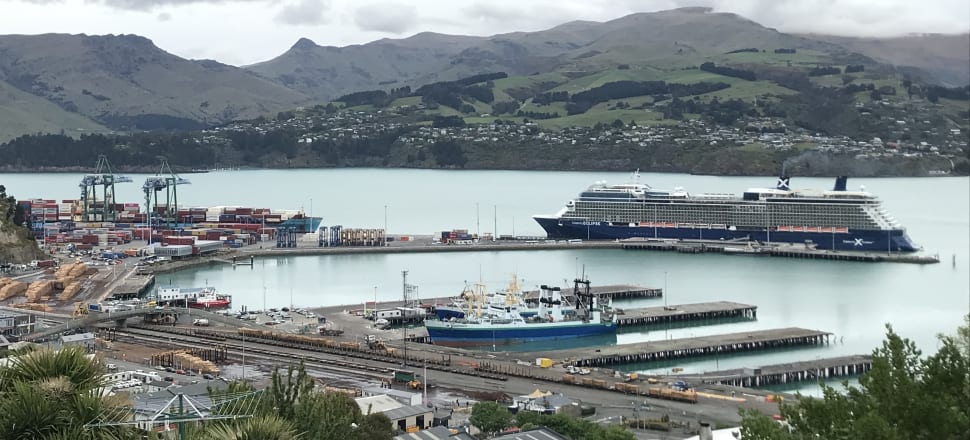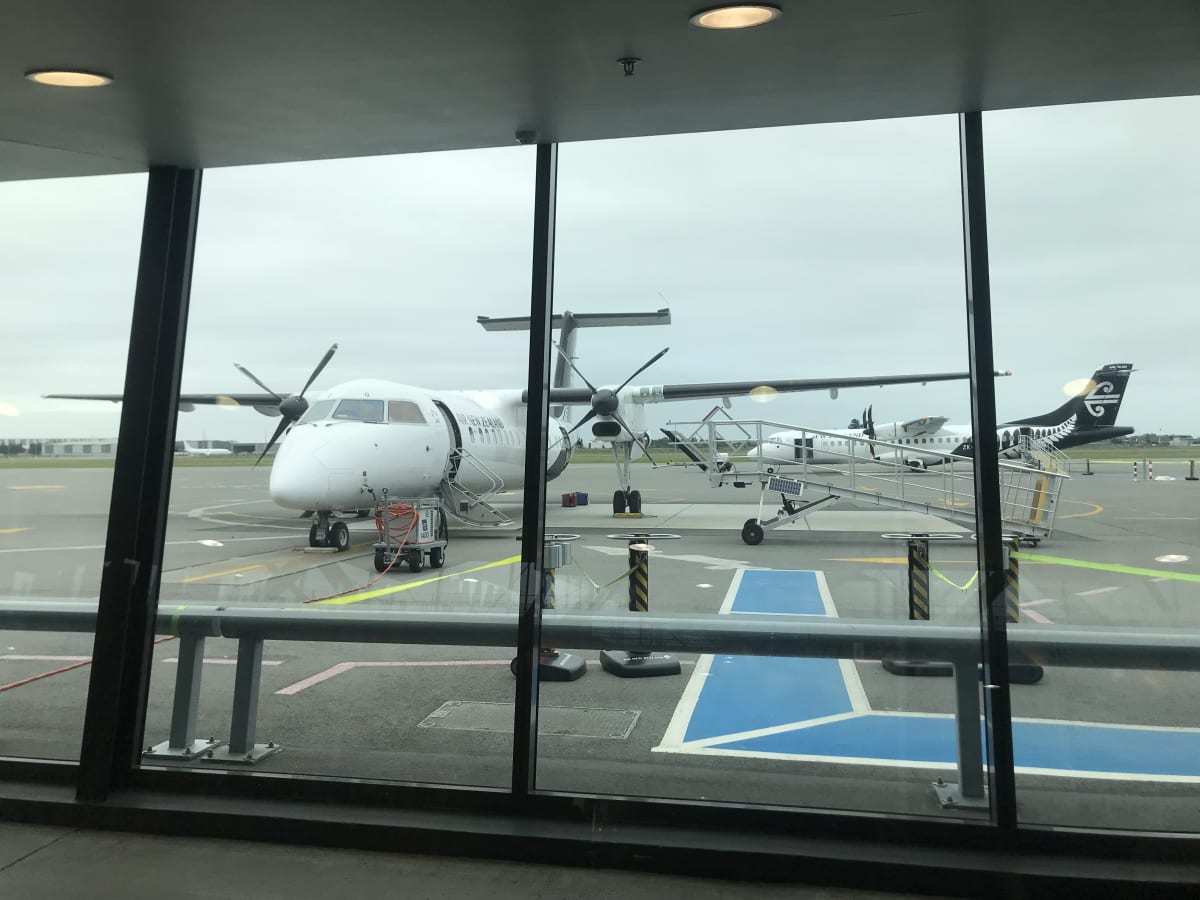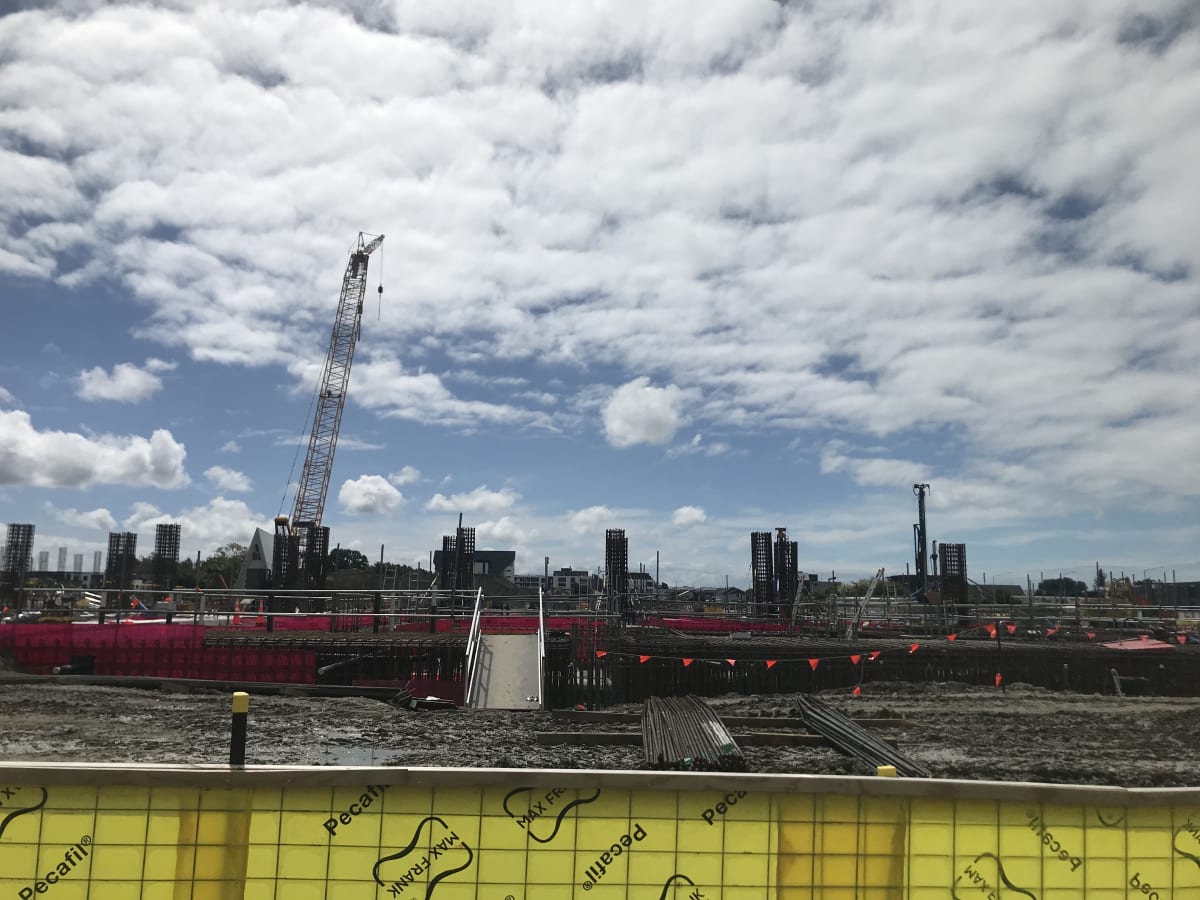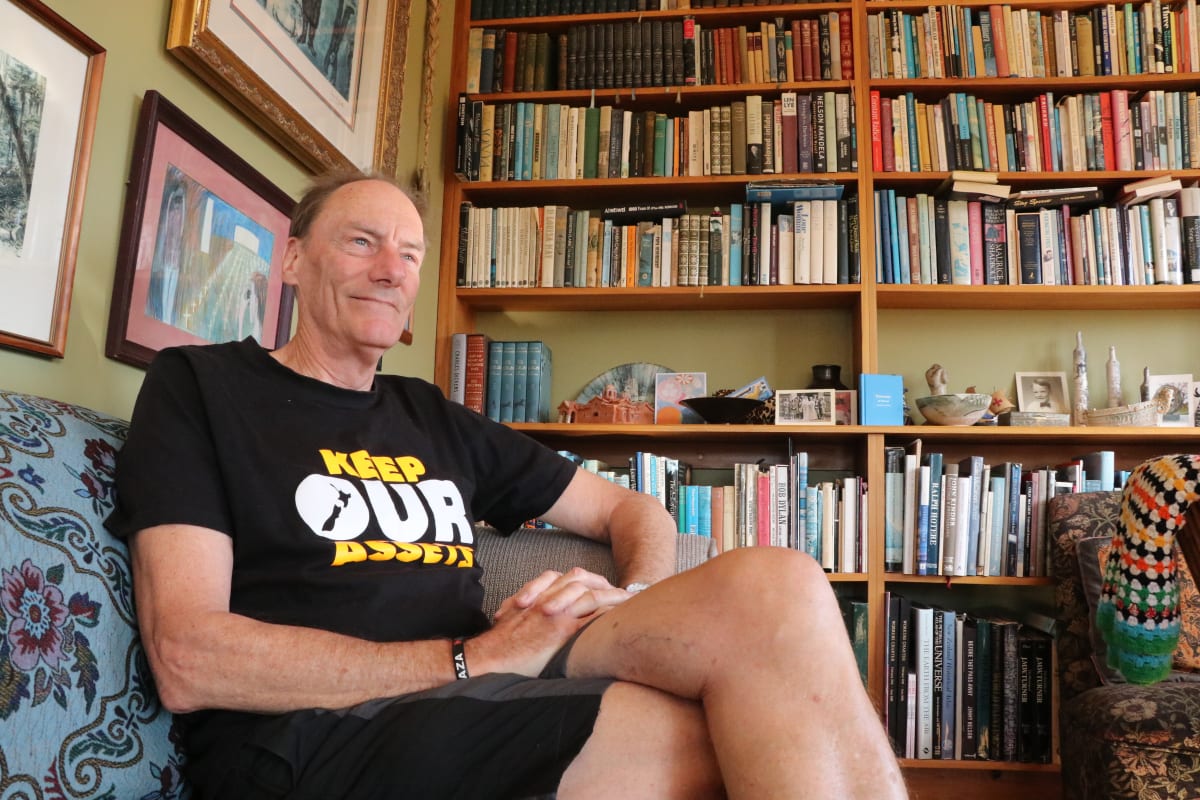
A warning about the curse of corporate investors emerges for Christchurch, which is weighing up partially privatising public assets, reports David Williams
Barry Corbett is probably most famous for being a Christchurch radio announcer. But he went on to become a city councillor and, after that, he had a part-time gig driving tourist trams around the central city.
Unsurprisingly, Corbett loves a yarn. So when Newsroom cold-calls him about city asset sales he’s happy to share a few stories – as long as he’s not seen as interfering.
“I’m right out of the loop now so I wouldn’t have a clue,” he says, good-naturedly. “To be perfectly honest, matey, I don’t take much notice.”
He did back in the day, though, and it’s his municipal memories we’re mining.
READ MORE: * Private meetings, dinner invite set mayoral race alight * How not to build a stadium: lessons from Christchurch
Corbett, who served 15 years on council, is a former deputy chair of Christchurch City Holdings Ltd, the council’s investment arm.
It owns, on behalf of the city, Christchurch International Airport (75 percent council-owned, with the Government), Lyttelton Port Company (100 percent-owned), lines company Orion (89 percent, with Selwyn’s council) and fibre broadband company Enable (100 percent).
But things could soon change.
In December last year, a report from investment bank and corporate advisory firm Northington Partners landed on the council table, seemingly out of nowhere, with a thud.
The report suggested the council corporatise CCHL’s board, reduce councillor representation, and sell a portion of the companies to investors. The idea is to “release” hundreds of millions of dollars, using it to reduce debt or reinvest, and improve dividend returns and reduce rates.
Councillors voted for detailed business cases to be prepared.
Christchurch residents could be forgiven for feeling blindsided, as last year’s local body elections didn’t feature asset sales.
(Exhibit A: A story in The Press headlined: “Christchurch mayoral hopefuls promise not to sell ratepayer-owned companies”. Exhibit B: In an RNZ debate, Mauger said the council, in searching for money, would “certainly not sell the family silver”.)
What the partial privatisation plan does is fill in some magical thinking.
New mayor Phil Mauger’s campaign promised the $683 million stadium wouldn’t be a burden on ratepayers, despite a $150 million budget blowout. And his core group of councillor supporters wanted to lower forecast rates increases and reduce council debt.
What was waiting in the wings, it seems, mostly out of public view, was partial privatisation. Northington’s three-month review of CCHL, which cost ratepayers $275,000, was approved by council chief executive Dawn Baxendale on August 18 last year.
The previous day, Baxendale met Mauger, then a mayoral candidate, and two of his inner circle, fellow councillors Sam MacDonald and James Gough, to discuss “mutual expectations”.
Minutes from the meeting note a point of discussion was “different relationship with CCHL, including greater return from CCHL or certainty of dividends.”

Corbett, the former councillor, asks Newsroom if we remember when Auckland’s power crashed, sending its central business district into darkness.
(The city’s Big One, a five-week power outage, was in 1998, the year Corbett was first elected to council. Corbett was appointed to CCHL in 2004, though. A six-hour blackout affected Auckland in 2006.)
“As a board we called in Orion and said, ‘Can you guarantee that this won’t happen here’?
“And they came back and they said, ‘No, we can’t guarantee that unless we have quite an extension of infrastructure’.”
Orion said that would require smaller dividends – millions of dollars less – to the council for five or six years so money could be spent on infrastructure.
Corbett: “We debated that and decided, yeah, OK, we’ll go without the dividends; make sure you get that done.”
That work was 90 percent finished, Corbett said, when the 2011 earthquake struck. The unfinished section was in the city’s east.
“You might remember, within a week we had a 66-kilovolt cable looped over the Avon River to provide the east with power.
“The rest of the city was good after the earthquake – the power was up within a matter of days.”
Therein lies the lesson. The sequence of events was possible because it was publicly owned, Corbett says.
“That’s why I’ve always believed that something like that, the power, should be in public hands – the airport, the port, all those big infrastructure ones – instead of making dividends that go into private hands.”
The classic case, though, according to Corbett, is Lyttelton Port.
Like many regional ports, it used to be listed on the stock exchange. Until 2014, that is, when CCHL acquired all the shares and the company de-listed.
Even as the majority shareholder, before CCHL took total control, the council couldn’t do certain things, such as build a cruise ship terminal, Corbett says.
“The returns aren’t as good [for the port] as allowing container ships there all the time. But the return is brilliant for Canterbury.”
Canterbury as a whole was better off with a cruise ship terminal, Corbett says, so the board decided to push ahead. Construction of the port’s new cruise ship berth was announced in 2017.
“That’s what you can do when you’ve got 100 percent ownership.”
“We can’t continue to put exorbitant rate increases across our residents and our business community, because that is just not sustainable.” – Leeann Watson
Leeann Watson, who heads Canterbury’s Chamber of Commerce, doesn’t sing the same tune as the former radio announcer.
“We’ve always had a view that the council should be open-minded to public-private partnerships and not necessarily holding a very firm, fixed, close-minded view that the council should own all of the assets that they do own,” she tells Newsroom.
It’s there in black and white.
In September last year – a month into Northington Partners’ work – the chamber released a list of 55 business expectations for the incoming council. Alternative funding and financing options should be explored, the document says, including “asset recycling and demonstrating an openness to public-private partnerships”.
Before the 2019 election, its top expectation was “an independent review of council’s asset base”.
“We know that we’ve got some infrastructure deficits, we know that we’ve got rising costs, and we can’t continue to put exorbitant rate increases across our residents and our business community because that is just not sustainable,” says Watson.
That may sound persuasive, but there’s a huge amount of missing context here. As always with Christchurch, it comes back to the earthquakes.
The city council “has had the largest increase in rates per capita of any major council in the country”, the Northington report says. They accelerated, necessarily, because of the earthquakes.
Lyttelton Port’s financial performance was hit by the quakes and the subsequent recovery – but, Northington says, “it has exhibited long-run under-performance”.
The advisory firm’s report picks up Corbett’s points about Orion and the port company.
Northington couldn’t “make a balanced judgment” on whether its pre-quake investment was justified, but it did think an arrangement to build a cruise ship berth could have been if it wasn’t council-owned.
The financial performance of most council-owned companies “is acceptable and in line with the regulated nature of their commercial activities”, the report said. (Which raises the question, how is a regulated industry going to earn significantly more?)

CCHL added little value as a portfolio manager, Northington argues.
While the criticism was probably aimed at the board, it runs on the smell of an oily rag, only employing four staff. To be fair, though, the holding company has suffered internal turmoil, recently including board resignations and the sudden departure of its chief executive.
The biggest handbrake on returns from the council-controlled trading organisations (CCTOs) is debt, Northington says.
“The additional debt and lower anticipated CCTO earnings will significantly affect CCHL’s ability to pay meaningful dividends to CCC in the medium term. Projected future dividends to CCC represent an income return of less than 2 percent on CCC’s investment value.”
But the very reason for this, as outlined in the report, is the companies were mortgaged to the hilt, to the tune of $440m, to help pay for the city council’s earthquake recovery.
This money, Northington notes without irony, “significantly increased CCHL debt and effectively brought forward future dividends”.
So, in summary, CCHL, which has a handful of staff, has performed “satisfactorily” through the earthquakes and Covid, overseeing companies which, in the main, made “acceptable” returns, and handed hundreds of millions of dollars to the city council in “future dividends”.
If the toughest times are behind it, how is bringing on corporate directors and selling half of some of the companies meant to improve things – other than meaning half the dividends flow to private investors?
The National-led government’s “mixed ownership model” for the state-owned power companies is held up by Northington and Watson as a great example of how things could be done.
But research released last year by First Union, the Council of Trade Unions, and climate group 350, found those companies have been paying out billions more in dividends than they've been making in profits, which has driven up electricity prices.
We put this to Watson, who responded with a question: “Who’s to say that the dividends may not be greater if we actually had some strategic partners come on board with some of those assets?”
But if the council owned only half the company, the council would earn less, wouldn’t it, unless dividends doubled?
“Well, who knows,” Watson says. “That’s a conversation for the council to have.”
Meanwhile, changes are afoot at CCHL. This week, Abby Foote, a professional director who trained in law and accounting, was appointed chair.
(Northington director Mark Cahill is on the appointment panel.)
Newsroom was told Foote unsuccessfully applied for a CCHL board position years ago, and, in her interview, was asked her views on the public ownership of assets.
We put that to Foote, and asked her views on public ownership, but her emailed response avoided answering those questions. She said CCHL’s strategic review will take up to 12 months and be considered as part of the long-term plan, with community input.

Veteran activist and two-time Christchurch mayoral candidate John Minto, who ran on a ticket to keep the city’s assets, is angry about the partial privatisation plan and fears the city is sleep-walking towards it.
To Minto’s annoyance, asset sales didn’t feature in the election campaign.
“This was the most important issue that should have been before the people of Christchurch and it wasn’t,” he says. “The citizens have to get mobilised to stop our elected representatives undermining the future of the city – it’s a travesty of democracy.”
In particular, he accuses Mauger of breaking an election promise.
(In an emailed statement, Mauger says no decisions have yet been made – “only a request for more information”. “What we are looking at is making sure that CCHL is set up to generate the best possible return for our city as it was intended to do. We will work through this at next year’s LTP and the public will be able to have their say.”)
Minto says appointing Northington to conduct the review is, he says, like asking a fox how the chicken coop should be guarded.
And he accuses supporters of partial privatisation of making arguments of convenience – of scaremongering about rates rises – when what’s behind it is ideology. In the 1980s and 90s, neoliberalism pinched state assets, he says, and now they’re coming for council companies.
In a financial sense, having big companies on the books means the council can borrow money more cheaply. Owning large assets gives the city economic standing, he says, ensuring it’s not a hollow shell to simply provide services in return for rates.
But there’s more to it than that, Minto says, something less tangible. It’s about Christchurch being a city of citizens, rather than a city of consumers.
“And that means that we – we as a community – own these really, really important valuable things that are valuable for us and will be valuable for our children and grandchildren.”
There’ll be a big campaign against it, Minto says – “you’ll hear a hell of a lot from us”.
He makes one last promise: “It will be a successful campaign.”
Corbett, the former councillor, says he’s not against some council-owned companies being sold, and isn’t bagging private investors.
“When you invest in a company you want to get good dividends. And sometimes, for the overall good of the area, you’ve got to give up those dividends for more infrastructure being built.”







